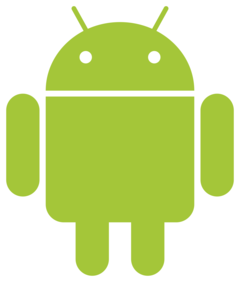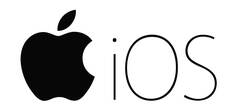My Mother's Parker 51
04/03/2023 03:11:19 PM
Rabbi Eisenman
| Author | |
| Date Added | |
| Automatically create summary | |
| Summary |



This past Friday, the Ninth of Nissan, was Leah bas Meir's (my mother-Lorraine Eisenman) eighth Yahrtzeit.
I present one more memory of her.
Part One- The Strange Discovery
It was a humid August evening in Brooklyn, New York, in 1982.
In less than a month, I would be married, leave my childhood home in Canarsie, and move with my new wife to Washington Heights.
My mother had one request: that I go through my old school notebooks and decide what to keep and what we could toss.
It had been years since the central air had functioned properly in our house on East 82nd Street, so we sat on the old couch in the basement, where it was comfortably cool.
Out of the storage section came box after cardboard box.
We went through each one, lifting binders and notebooks with reverence: sheets with my first attempt at writing alef-beis, notebooks with basic Gemara terms, so many pages chronicling my journey from kindergarten to adulthood, meticulously filed by my super-organized mother.
All that sorting inspired me to ask my mother about her own school experiences.
My mother stood up, returned to the storage room, and retrieved another box: complete with folders and notebooks with yellowed pages, dated 1949.
I immediately recognized my mother's beautiful cursive handwriting.
I was always awed by her splendid signature.
The way she formed the "E" in our last name was a masterpiece of calligraphic writing.
As I admired her penmanship, a cigar-shaped item with a silver patina covering its top half dropped into my lap.
An ancient writing instrument, I thought.
Upon further examination, I saw it had a silver cap.
I gently pulled it off to reveal a strange small point.
"It's called a nib," my mother informed me.
The nib was hooded.
Meaning it only protruded minimally from the top of the pen.
As I examined the pen, I noticed my mother was wiping her eyes.
"Ma, why are you crying?
Are you crying about an old pen?"
She focused on the glass doors, which looked out onto the backyard of our home before she turned back to face me.
"This pen is much more than a pen.
This pen is a friend.
A dear and beloved friend."
I was perplexed, "What do you mean this pen is your friend?"
"This pen was my constant colleague for two decades," my mother explained.
"I purchased it at Macy's, where I worked part-time in 1949.
I paid $14.95 with a ten percent employee discount.
I was beginning college, and I dreamed of a career in teaching.
I dreamt of finding a husband and raising a family.
I decided to buy a good pen that would last and perhaps be the vehicle, with Hashem's help, to fulfill my dreams."
I studied the pen and realized I had no idea how to use it.
My mother explained that it was a fountain pen, a Parker 51, which I later learned was marketed as "The world's most wanted pen."
Parker would sell more than 20 million pens in the over thirty years the Parker 51 was produced, beginning in 1941 and ending in 1972.
"This pen was my companion from my years in the South Bronx to Crown Heights, through college and post-college degrees at Hunter and Brooklyn Colleges," my mother explained.
"With this pen, I signed my first contract to teach in the New York City public schools.
And this was the pen Harav Dovid Mirsky Z" L used to fill out my Kesuva when I married your father.
This was the special pen I would use to write to your grandmother in Eretz Yisrael Shanah Tova every year.
"But what's most meaningful is that this was the pen I used to sign tuition checks for your yeshivah education.
Who knows where you would be and who you would be marrying if your father and I were not steadfast in our decision to send you and your brother to Yeshiva!
When your father and I announced in 1964 that we were sending you and your brother to yeshivah, my parents and sisters were shocked.
"You'll stunt their education; we're no longer in the shtetl!" they claimed.
But I proudly and gratefully picked up my trusty Parker 51 and defied my family and many friends.
As I signed my tuition commitment, I thanked Hashem that my sons were going to yeshivah."
Part Two- The Promise
A few weeks later, before I left my house in Brooklyn for the last time as a bochur, my mother handed me a small box. When I opened it, I found the Parker 51 she so cherished.
My mother had polished it, and its sterling silver cap glowed almost as much as my mother's proud face.
I knew how precious it was to her, and we both realized how special it would now be to me.
"This pen served me well for many years," she said.
"I want you to have it as you build your new home."
The pen remained in its box for the seven years we lived in our Washington Heights apartment.
When we moved to Passaic, once again, I tucked it away in a special drawer in my study.
On the ninth of Nissan 2015, my mother left this world.
When we cleaned out her apartment, we arranged a system for her children and grandchildren to choose items to remember her.
I chose not to take anything; my memories were my remembrances, and they would last forever.
And anyway, I had the pen securely stored in my drawer.
A few months after my mother passed away, I decided to open the box,
The silver cap had tarnished and had once again developed a patina, plus the pen was no longer operable.
It was then I decided that this pen should continue its mission.
I found a craftsman who restores fountain pens, and soon after, my Parker 51 was back in my hands, gleaming and in working order.
That very day when it arrived, I was scheduled to be Mesader Kiddushin.
What better way to preserve my mother's legacy than to use the same pen that was instrumental in building my mother's new home to write a Kesuvah establishing a new Jewish home?
Since that day, this cherished Parker 51 remains nestled on my desk for use when I have the privilege to be Mesader kiddushin.
Once in 2017, I was honored with being Mesader Kiddushin in Brooklyn.
When I arrived, I met Rav Dovid Feinstein ZT" L, who, unbeknownst to me, was also attending the wedding.
I immediately told him I could not be Mesader Kiddushin in his presence.
In his famously humble and self-effacing manner, he said, "I came as a guest, and I'm not staying long – I'm probably leaving before the chuppah. Please, this is your job today; I am off work."
He insisted I continue filling in the Kesuva.
Rav Dovid then noticed my pen.
"I see you're writing with a Parker 51. My father would use one as well," he said, no doubt to put me at ease.
I told him it was from my mother, who had bought it almost 70 years earlier.
"Hold onto it; it might be worth a lot of money," he said with his trademark smile.
"I wouldn't sell it for all the money in the world," I said.
"You are right in never selling it. You're fulfilling the mitzvah of Kibud Eim by using your mother's pen," Rav Dovid replied.
"You should use it at your child's chasunah very soon!"
Part Three- The Promise Comes True
Less than a year later, in Teves 2018, my youngest child and my mother's youngest grandchild, Aviva, was getting married to her Bashert, Ezzy Steiner.
As I lifted her pen to fill out the Kesuvah, I could feel my mother's presence.
This same pen which saw my mother begin her college career, which was used to fill in my mother's Kesuva and was instrumental in my receiving the greatest gift of all, a Torah education, was now continuing its lofty legacy by facilitating the marriage of my youngest daughter Aviva.
Later that day, when I reverently placed the Parker 51 back in its place of honor on my desk, I was reminded of something so fundamental to us as Jews.
When the Master Writer Himself wills it, even a Parker 51 pen bought in Macy's for $14.95 in 1949 can become His instrument of choice in the building a Jewish family.
Sun, October 26 2025
4 Cheshvan 5786
Today's Calendar
| Daf Yomi - Rabbi Jacobowitz : 9:00pm |
Friday Night
| Candle Lighting : 5:35pm |
Shabbos Day
| Hilchos Shabbos - Rabbi Eisenman : 8:15am |
| Bein Adam L'Chaveiro - Rabbi Eisenman : 11:15am |
| Daf Yomi - Rabbi Jacobowitz : 2:40pm |
| Massechta Taanis - Rabbi Eisenman : 4:20pm |
| Sixth Perek of Brachos - Rabbi Wiederblank : 4:20pm |
| Mesillas Yesharim w. Shalosh Seudos - Rabbi Eisenman : 6:03pm |
This week's Torah portion is Parshas Lech Lecha
| Shabbos, Nov 1 |
Candle Lighting
| Friday, Oct 31, 5:35pm |
Shabbos Mevarchim
| Shabbos, Nov 15 |
Important Links
Zmanim
| Alos Hashachar | 5:58am |
| Earliest Tallis | 6:25am |
| Netz (Sunrise) | 7:20am |
| Latest Shema | 10:00am |
| Zman Tefillah | 10:53am |
| Chatzos (Midday) | 12:40pm |
| Mincha Gedola | 1:07pm |
| Mincha Ketana | 3:47pm |
| Plag HaMincha | 4:54pm |
| Shkiah (Sunset) | 6:01pm |
| Tzais Hakochavim | 6:42pm |
| More >> | |
Privacy Settings | Privacy Policy | Member Terms
©2025 All rights reserved. Find out more about ShulCloud


